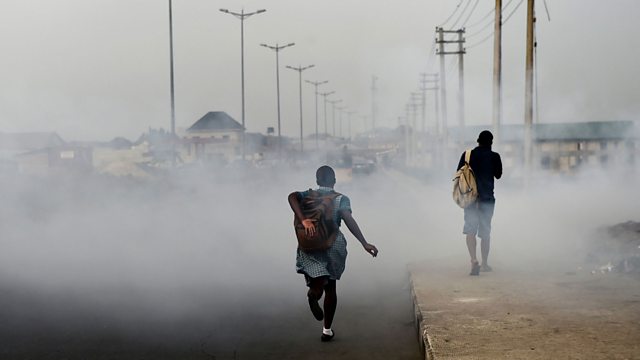
According to a new study, air pollution was responsible for 1.1 million deaths in Africa in 2019. The majority of these deaths — 697,000 — were caused by household air pollution, which was primarily caused by indoor cooking stoves.
However, while household air pollution is the most common type of pollution, it is decreasing. While outdoor or ambient air pollution is increasing, indicating a looming problem, according to Boston College professor of Biology Philip Landrigan, who co-led the project with United Nations Environment Programme Chief Environmental Economist Pushpam Kumar.
According to the report, air pollution is Africa’s second leading cause of death. It is a major threat to health, human capital, and economic development, accounting for 163% of all deaths.
On the continent, outdoor air pollution caused by sources such as exhaust smoke and pollutants emitted by industries claimed the lives of 394,000 people.
Air pollution kills more people than tobacco, alcohol, traffic accidents, and drug abuse combined. Only HIV/AIDS is responsible for more deaths.
Aside from the loss of life, air pollution caused by smog-inducing ozone and fine particles may drain billions of dollars from the continent’s economy each year.
Disease and fatalities
In addition, disease and fatalities from home air pollution are currently reducing across Africa, albeit slowly and unevenly, thanks to continuous actions by governments, non-governmental organizations, and UN agencies. Charcoal and kerosene, both polluting fuels, are still widely used.
Lower respiratory infections cause 336,460 deaths, ischemic heart disease (due to artery blockage) causes 223,930 deaths, newborn problems cause 186,541, chronic obstructive lung disease causes 70,479 deaths, and stroke causes 70,479 deaths (193,936).
The paper also links the pollution to the intellectual development of Africa’s youngsters, which has far-reaching consequences.
However, according to the study, Ethiopia’s economy lost $3 billion in economic production due to air pollution-related sickness. Accounting for 1.16 percent of the country’s GDP; Rwanda’s economy lost $349 million (1.19 percent of GDP); and Ghana’s economy lost $1.6 billion (0.95 percent of GDP).
The research intended to measure how air pollution affects health, human capital, and economies across the continent, with a specific focus on three fast developing Sub-Saharan countries: Rwanda, Ethiopia, and Ghana.
The paper, titled “International Day of Clean Air for Blue Skies,” was published in the latest issue of The Lancet Planetary Health on October 7 and shows that patterns of air pollution-related disease and death differ across Africa. Countries with the lowest social development indices have the greatest rates.
Ghana on air pollution
In Ghana, the most economically developed of the three countries we studied in depth. A rising trend in ambient air pollution-related mortality is visible, and it is beginning to emerge in Ethiopia and Rwanda.
Gender differences in air pollution-related sickness and death can be noted, with women accounting for 43 percent of ambient (outdoor) air pollution deaths and 47 percent of domestic air pollution deaths.
Household pollution exposures are highest in Ethiopia and Rwanda. Where an estimated 98 percent of homes use solid fuels for cooking and heating, according to the three nations studied.
“The most disturbing finding was the increase in deaths from ambient air pollution,” said Landrigan
“While this increase is still modest, it threatens to increase exponentially as African cities grow in the next two to three decades and the continent develops economically.”
With the continent’s population growing at an alarming rate, the problem may become even worse.
Cities are booming, economies are flourishing, and life expectancy has nearly doubled in Africa, which is on course to more than treble in this century, from 1.3 billion in 2020 to 4.3 billion by 2100, according to the study. According to them, this may be a concern.
Also Read:
Vehicles having the identical license plates are impounded by the Uganda Police.
Will Smith Seeks Advice From Denzel Washington.
Nubian Li weds his Wife Mutoni Salsa At Kibuli Mosque.
No Time To Die Claims the Highest Chart Ever For All Bond Movies
OS Suuna Tells Journalists To Stop Playing His Music If They Want
According to the paper, fossil fuel consumption has already resulted in a rise in outdoor air pollution, which killed 29.15 persons per 100,000 people in 2019, up from 26.13 deaths per 100,000 in 1990.
If no action is taken, air pollution will raise sickness and mortality, lower economic output, stifle human capital formation, and stifle development, according to the research.








